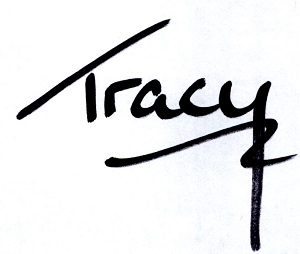
You have to undestand, this is not a question I’ve ever asked myself. I’ve been reading science fiction for so long that my answer is a silent “d’uh!”
However, since I started publishing science fiction romance in late 2015, I know I have converted quite a few romance readers to the charms of science fiction.
Later this year I will be releasing “straight” SF, too. (I’m not super comfortable calling it “straight” SF, but do need to distinguish it from SFR — at least at the outset. From now on, I’ll maintain the standard acronyms.)
If you’re new to science fiction, or you’ve only watched science fiction, and mainly confined yourself to the über franchises like Star Trek and Star Wars, then you’ve not been able to sample the best of science fiction.
Science fiction is increasing in popularity–although it has a long way to go before it comes close to the same size as the romance market. Thanks to the two biggies I mentioned above, along with some fantastic single-movie SF like Arrival and The Martian, plus incredibly-well-told series like Dark Matter, Killjoys, and The Expanse and many more, science fiction is gathering new readers all the time.
One of the best aspects of this new wave of popularity is that many of those new readers are women. The Huffington Post said:
…the majority of young adult fiction readers are female, and girls aren’t supposed to like science fiction. Try telling that to the girls and women of all ages embracing science fiction fandom at every level.
The Intergalactic Medicine Show thinks that only “NT” types of the Briggs-Myers personality types are attracted to science fiction, but personally, I think that’s baloney (and yes, I am an NT–an INTJ, actually). NTs are only a small fraction of the population and science fiction is enjoyed by far more than the 2 or 3% that NTs represent.
So what do the increasingly female and increasingly numerous readers of science fiction get out of it?
If you’re a romance reader, as the majority of my readers are, then you quite likely read romances because they always have a happy ending, which is uplifting and, to a degree, escapist (because a happy ending is not a guarantee in real life).
Guess what? So is a lot of science fiction. Space Opera in particular is a champion of the positive ending, of themes that feature the good guys triumphing over evil, of darker characters finding redemption, and bad guys getting what they deserve. Really good space opera is cathartic–just ask the millions of viewers who cheer out loud at the end of Star Wars.
The vast majority of science fiction is branded by its futuristic setting. (There are exceptions, but as you’ll learn when you start reading science fiction, trying to pin down a perfect definition of SF is near impossible.) If you haven’t read a lot of science fiction, you’ve probably assumed that the attraction for SF readers is the futuristic setting and cool rocketships, amazing technology and dogfights in space.
While they are some of the elements in SF, that’s not actually what SF is about. Believe it or not, science fiction–despite being set in the future–is a discussion about today’s culture, politics and science and the possibilities that lie not so very far ahead of us. You’ll have your perceptions widened, you’ll find yourself considering aspects of the world today that you’d never thought of before, especially not in the new light a SF novel can shed on it.
That’s why I love SF. If you discount the young adult dystopian fantasies that litter the cinemas and bookshelves and instead dip into the vastly larger world of science fiction, you will come away with a sense of excitement about the future. You’ll realize that mankind doesn’t have to do a number on itself the way the media would like us to believe we’re doing these days.
You’ll find hope, which is never a bad thing.
Plus, science fiction is, ultimately, damned good fun to read.
Why do you read science fiction? Comment below.
___
Next week, I’ll build a short list of “starter” science fiction novels, to sample the genre, if you haven’t already.
Cheers,

Get the news that no one else does. Sign up for my newsletter.
For a short while, you get a bundle of ebooks, free, when you sign up, as a Starter Library. Details here.
I don’t really know, except that I’ve always loved it. I think it’s the wonder, the possibilities, the science of it all. Even when it doesn’t end as you’d like it to, if written well, it’s still a wonderful journey; after all true SF won’t always provide a happy ending, but it can end with thought provoking possibilities. But I’ll admit I still love SF with, if not outright romance, at least the possibility of it around the corner, or love for humanity, justice, truth, Do you know what I mean?
Oh, absolutely, I know what you mean, Dina. I think that’s why I fell into writing romance originally — the science fiction stories I loved the most had romantic sub-plots, or were love stories as well. I used to love that combination!
Cheers,
t.